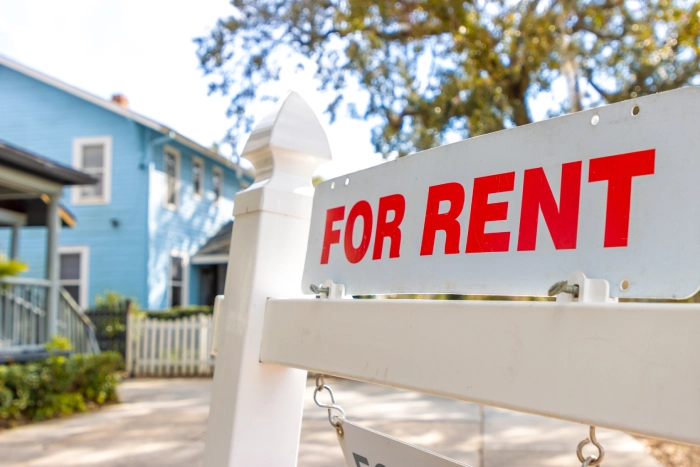Who Qualifies for a DSCR Loan?
Introduction: Can You Qualify for a DSCR Loan?
If you are a real estate investor looking to finance rental properties without using personal income, you are in the right place. A DSCR loan offers a unique path to financing that does not require tax returns, W2s, or traditional employment verification. Instead, it looks at the income generated by the property itself.
In this guide, we will explain exactly how to qualify for a DSCR loan, who it is best suited for, and what lenders are really looking for when reviewing your application.
What Is a DSCR Loan?
Before we dive into qualifications, let us briefly cover what a DSCR loan is.
DSCR stands for Debt Service Coverage Ratio. It is a measure lenders use to determine whether a property’s rental income is enough to cover its debt payments. These loans are designed for real estate investors who prefer to qualify based on a property’s income, not their personal finances.
How DSCR Loans Work
Instead of looking at your debt-to-income ratio, DSCR lenders focus on the ratio between:
- Monthly Gross Rental Income
- Monthly Debt Obligations (Principal, Interest, Taxes, Insurance, and HOA if applicable)
DSCR = Rental Income ÷ PITIA
A DSCR of 1.0 means the property makes exactly enough to cover the loan payment. A DSCR above 1.0 means it generates a surplus. Some lenders may even allow a DSCR slightly below 1.0 under the right circumstances.
Who Qualifies for a DSCR Loan?
Let us break it down. To qualify for a DSCR loan, you do not need a traditional income or job history. Instead, lenders will evaluate the deal based on several key factors.
1. Property Type
You must be purchasing or refinancing an income-producing property. This can include:
- Single-family rental homes
- Two to four unit properties
- Condos and townhomes
- Short-term rental or Airbnb properties
- Multifamily buildings (typically up to four units, although some lenders allow more)
Primary residences do not qualify for DSCR loans. These are strictly for investment purposes.
2. Property Income (DSCR Ratio)
The most important metric is the Debt Service Coverage Ratio.
Most lenders want to see a DSCR of at least 1.00, meaning the rental income equals the housing expense. However, some flexible lenders will allow lower DSCRs—such as 0.75 or 0.85—especially if you are bringing a strong down payment or have solid reserves.
You can use actual rents (with a lease or 1007 rent schedule) or market rents based on an appraiser’s opinion.
3. Credit Score
Credit requirements vary by lender, but most want to see a minimum FICO score of 620 to 660. That said:
- Scores of 680+ often receive better rates and terms
- Some lenders allow scores as low as 600 in select programs
- No credit score may be allowed with strong compensating factors
Your personal credit history still matters, even though income is not verified.
4. Down Payment
Down payment requirements are generally:
- 20 percent minimum for most investors
- 25 percent preferred for best pricing
- 15 percent may be allowed with strong DSCR and credit
Keep in mind, these loans are not eligible for mortgage insurance, so more money down lowers lender risk.
5. Reserves
Reserves refer to assets you have left over after closing. These help lenders feel more comfortable that you can handle unexpected expenses.
Typical requirements include:
- 3 to 6 months of PITIA (Principal, Interest, Taxes, Insurance, and HOA if applicable)
- More reserves may be required for larger portfolios or weaker DSCRs
These can come from checking, savings, retirement accounts, or other liquid assets.
6. Loan Purpose
You can qualify for a DSCR loan whether you are:
- Purchasing a new rental property
- Refinancing an existing investment property
- Doing a cash-out refinance to reinvest elsewhere
Just remember, the property must be used as an investment—not your primary residence or second home.
What You Do Not Need to Qualify for a DSCR Loan
Unlike traditional mortgage programs, qualifying for a DSCR loan does not require:
- W2 income verification
- Personal debt-to-income (DTI) calculations
- Employment history
- Tax returns
- Bank statements (for income)
- Lease history or landlord experience (in many cases)
This makes DSCR mortgages ideal for:
- Self-employed borrowers
- Real estate investors with multiple properties
- Retirees or individuals with non-traditional income
- Foreign nationals (in some programs)
Other Factors That Lenders May Consider
While the focus is on the property, some lenders may also consider:
- Your experience as a landlord (especially for short-term rentals)
- Your portfolio size and how well those properties are performing
- The location of the property and rental demand in that market
- Whether the appraisal supports the rental income needed
Every lender has their own matrix, so having access to multiple options is key.
Common Scenarios That Still Qualify
You may be surprised how flexible some DSCR lenders can be. For example:
- DSCR under 1.00 but with a strong down payment? You may still qualify.
- Credit score under 640 but strong reserves? Possible.
- Limited property history? Still doable.
As mortgage brokers, we work with a wide variety of DSCR lenders who offer creative solutions for unique borrowers. If your deal makes sense, chances are we can find someone willing to fund it.
How to Qualify for a DSCR Loan: Step-by-Step
- Get a Rental Income Estimate
We start by estimating the property’s gross monthly rent. This can be actual rents or appraised market rent. - Calculate the PITIA
We factor in the monthly mortgage payment, property taxes, insurance, and HOA if applicable. - Determine Your DSCR
We divide the income by expenses to get the ratio. A DSCR of 1.0 or higher is typically required. - Review Credit, Assets, and Experience
We review your credit score, available reserves, and investor experience. These all help strengthen your file. - Submit to the Right Lender
We match your scenario to lenders in our network who are most likely to approve your loan—saving you time and stress.

Qualifying for a DSCR Loan as a First-Time Investor
Even if you have never owned a rental property, you can still qualify. Many DSCR lenders allow first-time investors, especially if:
- The property has strong projected rents
- You have good credit and sufficient reserves
- You are using professional property management
If you are new to investing, we will guide you through the entire process.

DSCR Loan Qualification FAQs
Do I need to have landlord experience to qualify?
Not necessarily. Some lenders prefer experience, but many are fine with first-time investors.
Can I use short-term rental income (Airbnb or VRBO)?
Yes, many DSCR lenders allow short-term rental income if it is documented or supported by market comps.
What if my DSCR is under 1.0?
Some lenders will still approve you, especially if you have strong credit or make a larger down payment.
Can I qualify with no tax returns?
Yes. DSCR loans do not require tax returns or income documentation.
Can foreign nationals qualify?
Yes, many DSCR programs allow foreign nationals to invest in U.S. properties.
Conclusion: Do You Qualify for a DSCR Loan?
If you are looking to grow your rental portfolio and want a loan that focuses on the property’s performance—not your tax returns—then you are likely a great candidate for a DSCR loan.
Every lender has different guidelines, but that is where we come in. As mortgage brokers, we work with multiple DSCR lenders across the country. That means we can help you find the right program based on your credit, down payment, reserves, and property income.
Even if you are not quite sure you qualify, submit your scenario. If you are close, we may still be able to make it work.
Let us help you get matched with the right lender.
Submit your scenario and we will search for the best DSCR loan options available. Our team at MyDSCRLoan.com will guide you every step of the way.

